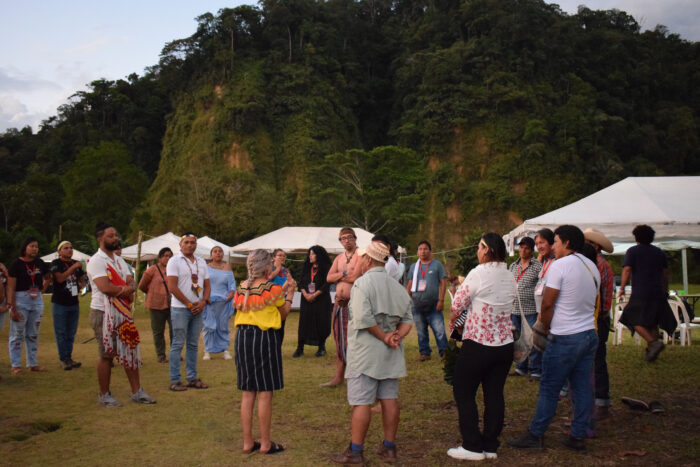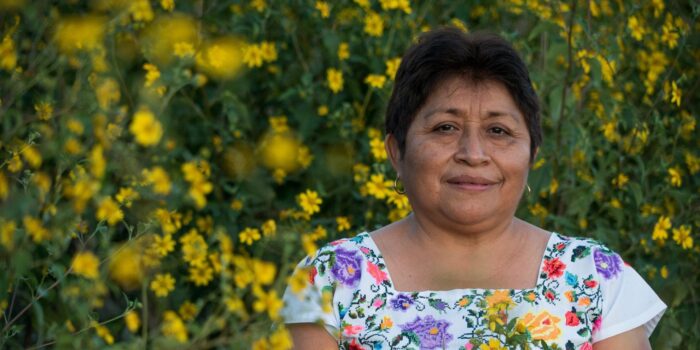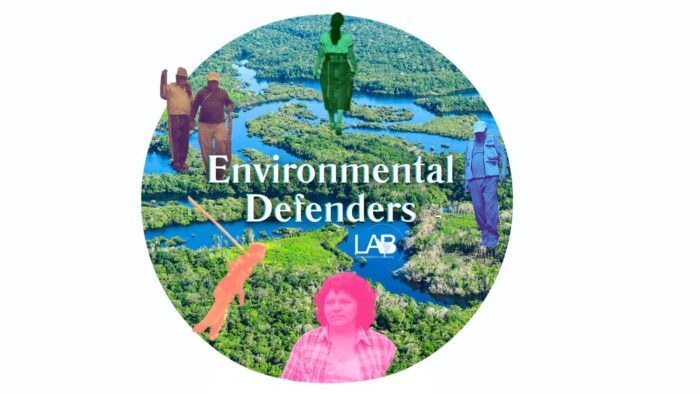Dear LAB subscribers,
This is the final newsletter you’ll receive this year. Thanks to all of you who’ve kept up with our newsletters and our reporting throughout this year. Thanks to everyone who made it to a LAB event, who bought books, who wrote for the website and took part in our projects.
In January we’ll share with you LAB’s achievements from the past year, alongside a special appeal. In this newsletter we’ll update you on the latest from Latin America.
But quickly, remember:
- If you are a researcher looking to partner with LAB on a research project in 2024, please get in touch. Find out more about how we can support you here.
- If you’d like to give a gift to LAB this Christmas, please consider donating. (Remember to add GiftAid!)
- And, if you end up doing any online shopping this festive period, you can raise free donations for LAB when you shop in 6,000+ stores online using Give as you Live Online.
- Click on the image and follow the instructions. It’s super easy to set up and comes at no extra cost to you.
News from the region
Controversial Javier Milei becomes President of Argentina
Javier Milei, who promises to ‘take a chainsaw’ to the economy, became Argentine president on 10 December. Known for insulting his opponents and stirring controversy, always with an eccentric edge, Milei has adopted the slogan “make Argentina great again” (MAGA), a pandering to fellow fans of Donald Trump, and a particularly nauseating video has circulated, showing Milei and Bolsonaro celebrating together. Far-right Hungarian president Victor Orbán also showed up for Milei’s inauguration. Here, Sam Halvorsen explains how Milei exploits deep rage within Argentine society.
Maxine Lowry speaks to the older generation at a huge demonstration in Buenos Aires’ Plaza de Mayo following Milei’s election: “Generally the old guys are blamed for conservative trends but this time the youngest voters elected Milei. The memory of the 30,000 disappeared and human rights is not their problem. They are tired of having to leave the country to find work.” She analyses a new trend of vandalism against memory tiles set into pavements and walls to mark the spot where people were arrested or lived during the dictatorship and subsequently disappeared.
COP28 is a bit of a joke
On Monday 4 December, activists interrupted a panel at COP28 between representatives of the Brazilian government and mining company Vale, who is responsible for the disasters of Mariana and Brumadinho which caused 300 deaths and affected over 350,000 people in Minas Gerais state, Despite the event claiming to include a “plurality of agents”, Black and Indigenous leaders were not invited to the panel on “Brazil’s National Energy Transition Policy from different perspectives”. So they stormed in and made their voices heard.
“At a conference that looks like it is set in a theme park, Lula undermines the government’s environmental credibility by announcing that Brazil will join OPEC+, a block of ten nations allied with the Organization of Petroleum Exporting Countries. Colombian president Petro on the other hand says only a new, progressive generation can move Latin America away from fossil fuels. Petro proposes that the Amazon rainforest be declared a zone free of fossil fuel production and has supposedly suspended new oil exploration contracts in the country.

Gold mining continues to ravage the Amazon
Nothing is destroying the Peruvian Amazon – one of the world’s largest expanses of tropical forest – quite like gold-mining, writes David Hill. The impacts of this gold-rush: deforestation, contamination of water sources by mercury, wildlife habitat destruction, biodiversity loss, Indigenous territories and protected areas invaded, a human health crisis, money laundering, child labour, murders, disappearances, human trafficking, prostitution and even the auctioning of young “virgin” girls.
With gold prices at an all-time high, criminal groups are increasingly turning to gold mining to fund their illicit activity, with illegal mining operations rapidly expanding across the Amazon. Napo, in the Ecuadorian Amazon, has emerged as a battleground: “They leave our forests destroyed, our river destroyed, our way of life destroyed. How are we going to live? We depend on the water. We live from the river,” says Leo Cerda from Napo Province. In response, over 100 activists and storytellers from across the Americas gathered in Leo’s community in October to forge an alliance against extractivism and illegal mining. LAB’s Rebecca Wilson and Eliana Lafone report.
Movement building in the Americas
For the Women Resisting Violence blog, Daniela Cortés Vargas reflects on hope despite complexity at the Feminist Movement Building School held in Mexico City at the end of August, attended by a diverse group of 15 social movement activists from across the Americas and organised by JASS Just Associates and the Feminist Centre for Racial Justice.

Mexico’s environmental defenders
Rachel Stevenson profiles Ledy Pech Martín, a Mayan beekeeper who led the fight against the multinational giant, Monsanto, and won. She has worked tirelessly to raise awareness over pesticide use and its effects on the natural habitat of bees, as well as the honey supply that is crucial to the livelihoods of indigenous Mayans in the Yucatán peninsula.
The Gas Natural del Noroeste company began installing a gas pipeline in the Indigenous territory of San Juan Bautista de la Laguna in Jalisco five years ago without the consent of the local population. The community has been struggling not only against this project, but also in defence of their lagoon, their land, and their existence as an Indigenous people. Mariana Mora and Matt Dunnett share the story of the women embodying this resistance, for the Environmental Defenders series.
Seven months ago, the residents of Santa María Chi, a precinct of the Yucatán city of Mérida with a small population of 480 people, started to fall ill with health complications caused by pollution and fires on the 178-hectare San Gerardo pig farm, leased to the pork farming giant, Kekén. Residents have built a resistance camp outside the farm’s gates, demanding dialogue and claiming “our water will become poison”.
It’s so hard for Abigail to talk about the imprisonment of her dad, Bartolo Pacheco. He is one of the five members of the Ejido El Bajío arrested on 13 April 2016 for defending their land against a gold mine belonging to a company owned by the powerful Mexican Peñoles Group. Abigail hopes that the project which will emerge from their struggle can improve the situation for the whole ejido, as well as for all the flora and fauna of the beautiful Altar desert.
Environmental victory in Colombia
LAB reported on the struggles of a community outside of Bogota fighting to protect a biological corridor home to diverse wildlife and a basin serving water to scores of communities in Cundinamarca. Following public demonstrations, legal pressure, and press and social media vigilance, the community secured a signature from the director of the environmental authority declaring the environmental licence to mine no longer valid. Congratulations to the community and thanks to everyone working on the Environmental Defenders series – international support was key to this win.

Book and film recommendations
Eliane Brum dives deep into the Amazon forest to learn how to live in ‘terror and joy’ in the midst of a climate apocalypse in her new book Banzeiro Òkòto – the Amazon as the Centre of the World, reviewed for LAB by Sue Branford.
A journalist who helped to preserve the memory of a nation battles with his own fading memory in La Memoria Eterna, new doc by Maite Alberdi, reviewed by Karoline Pelikan.
Totem is a beautifully layered and cinematic film. While profound melancholy underpins the story, through Lila Aviles’ masterful direction, it brims with light and life, says Jasmine Haniff.
Trenque Lauquen, the second solo work from Argentine director Laura Citarella, is a beautifully complex treatise on the notion of discovery, the wholly biased act of interpretation and the porous unreliability of the archive. Review by Jessica Wax-Edwards.
If you’d like to receive LAB’s newsletter in your inbox, subscribe here.

